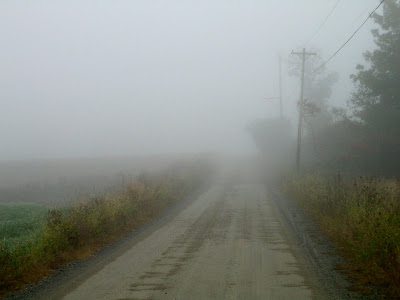Noticing nuances, nigglies, and "knot-aphors": our habitual perceptions
 I have a confession to make: Yesterday's quote of the day would have been from Hexagram 7 -- THE ARMY. My instinctive thought was "Ugh. I don't want to go there." I'd read too many news reports of suicide bombings, Middle East troop surges, and hints that the US will bomb Iran -- and then the news of the Israeli-Hezbollah prisoner exchange revealed that two Israeli soldiers were being "traded" as corpses. My mind and heart recoiled at pondering military matters.
I have a confession to make: Yesterday's quote of the day would have been from Hexagram 7 -- THE ARMY. My instinctive thought was "Ugh. I don't want to go there." I'd read too many news reports of suicide bombings, Middle East troop surges, and hints that the US will bomb Iran -- and then the news of the Israeli-Hezbollah prisoner exchange revealed that two Israeli soldiers were being "traded" as corpses. My mind and heart recoiled at pondering military matters.I woke this morning with the words, "Nuances, nigglies, and 'knot-aphors'" scrolling through my mind. At first, I couldn't connect the phrase with anything definite (and I hadn't had my first cup of tea!) ... until I sat down at my computer and recalled last night's "Ugh!" ... Right -- Hexagram 7. Haven't entered a quote.
For years, I judged Hexagram 7 as a "bad" hexagram. It comes right after 6 -- CONFLICT ... but before 8 -- UNITY. I'd long refused to see the potential for UNITY; I'd blinded my inner eye to the nuances within an ARMY, its conduct and qualities that can be used for the good. Since my husband once served in our country's armed forces and has a deep interest in ancient, honourable warrior traditions, I started to ask him questions like "What does an army do, other than to kill?" "What are the military virtues?" and "Who have been the great leaders of armies?" He opened my eyes to my ignorance, and to an aspect of world history that now rivets my imagination.
I'd been "stuck" with that 7th hexagram -- would only see the extreme Yang of it, and none of the Yin (so to speak). Every hexagram is multi-faceted; there are "light-sides" and "shadow-sides" to every I Ching principle. I'd glued my mind's eye to the nastier potentials and practices of THE ARMY. All the quotations I'd collected for this hexagram so far revealed the skew in my vision:
What passing-bells for those who die as cattle?
Only the monstrous anger of the guns.
(Wilfrid Owen, "Anthem for Doomed Youth")
When I was in the military, they gave me a medal for killing two men and a discharge for loving one. (Leonard Matlovich, attributed)
The new idol is the state. (Frederick Nietzsche)
Never think that war, no matter how necessary, nor how justified, is not a crime. (Ernest Hemingway)
... Deeper study of Hexagram 7 began to reveal underlying principles -- and those military virtues -- of courage, loyalty, conviction, discipline. Guidance from the oracle persistently points to amassing one's highest good in the service of a wise and moderate leader ... and towards a choice to hone one's spiritual values into a one-pointed aim of honour.
Because there is such an emphasis in Hexagram 7 on collective force, hierarchy, and ideological action, a danger always exists that one will exert his authority -- or follow an order -- that will bring harm and destruction. On the other hand, Hexagram 7 can compel us to "cut through the crap" with wisdom's blade, and follow the noblest ideals:
If one wants to enter a spiritual path, to explore soul, a certain warrior quality is needed. I'm not speaking of defeating anyone, but of having a courageous heart. (Jack Kornfield)
A wise man who stands firm is a statesman; a foolish man who stands firm is a catastrophe. (Dr. Laurence J. Peter)
For to win one hundred victories in one hundred battles is not the acme of skill. To subdue the enemy without fighting is the acme of skill. (Sun Tzu)
No evil propensity of the human heart is so powerful that it may not be subdued by discipline. (Seneca)
No evil propensity of the human heart is so powerful that it may not be subdued by discipline. (Seneca)
... and warnings remain in regard to our conduct as individuals, societies, and as a species:
 The choice today is no longer between violence and nonviolence. It is either nonviolence or nonexistence. (Martin Luther King)
The choice today is no longer between violence and nonviolence. It is either nonviolence or nonexistence. (Martin Luther King)Top image: Mariona Barkus, "Huh?" (http://www.angelsgateart.org/)


Comments